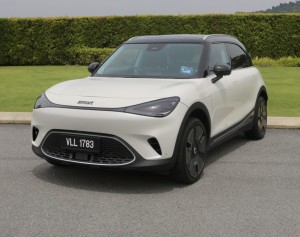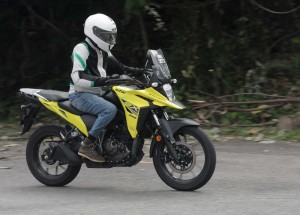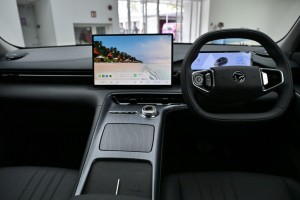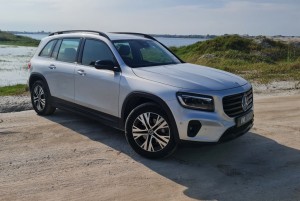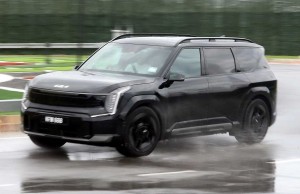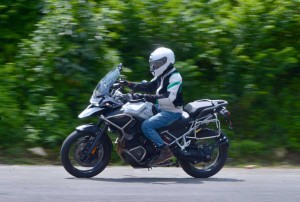The Scuttler's most prominent feature is a continuous track, a kind of propulsion borrowed from bulldozers and tanks, instead of the classic wheelchair wheels. — All pix by dpa
BERLIN: Part chair, part tank, the off-road wheelchair known as the Scuttler is one of a kind, according to creator Martin Ebner.
"Most all-terrain wheelchairs just have thick tyres, and that's not enough," says the hobby tinkerer and engineer based in Germany, whose remote-controllable wheelchair is built to handle almost any kind of terrain and incline.
Its most prominent feature is a continuous track, a kind of propulsion borrowed from bulldozers and tanks, instead of the classic wheelchair wheels.
Hiking trails in many other parts of the world mostly aren't made with people in wheelchairs in mind. An excursion in the mountains is unimaginable for many with impaired mobility, but Ebner wants to change that.
"I want to test it on the ski slopes soon," he says, ramping up the speed. Ebner's goal is to enable handicapped and elderly travellers who can't clamber about in the rocky landscape to enjoy the mountains. His creation could also be adapted for use as a rescue stretcher or in forestry or for the harvest, he says as examples.

Ebner, a trained aerospace electronics engineer, spent hours sketching plans and making a wooden model to figure out the height of the shock absorbers.
He ordered chains, track, an engine and gears, and had the metal parts lasered. He also developed a sensor so if the wheelchair leans at a dangerous angle, the driver is alerted, visually and with a sound. The wheelchair now stops before it tips, and can be brought back onto safe terrain by remote control.
After half a year of tinkering, welding and screwing parts together, the chair now moves at a maximum speed of 6 kilometres per hour.
He is not done, however. "I'd like to make the suspension even softer and maybe a bit more sporty," he says, gazing critically at his creation. It also still needs to be painted and fitted with a GPS.
Right now, the chair's battery lasts just under two hours, but Ebner wants it to manage three to four hours. There are plenty of places this chair could go, he says, adding that if companies are interested, he could scale up production.

The kit could be made out of aluminium too, he says, and someone could assemble 90 per cent of it remotely - with the right instructions.
For now, the Scuttler is for his mum, who is 80 years old and no longer as mobile as she used to be.
Ebner wants tourists to be able to set off spontaneously, and to head out wherever they please. "Imagine people could just go out into the woods again, up to a castle then over to a cafe two kilometres away."

